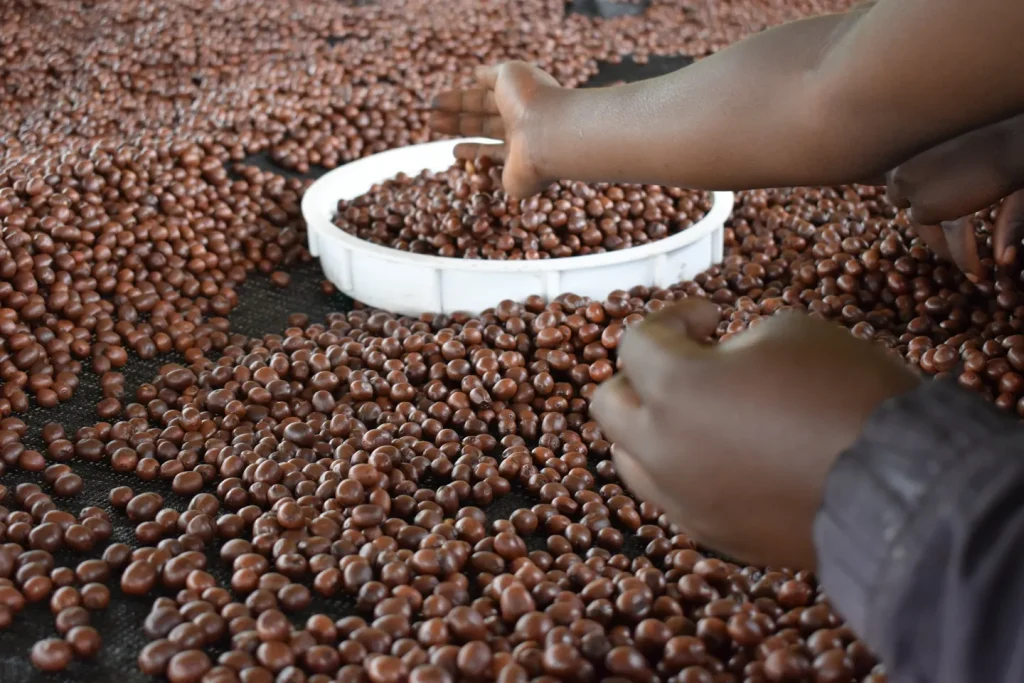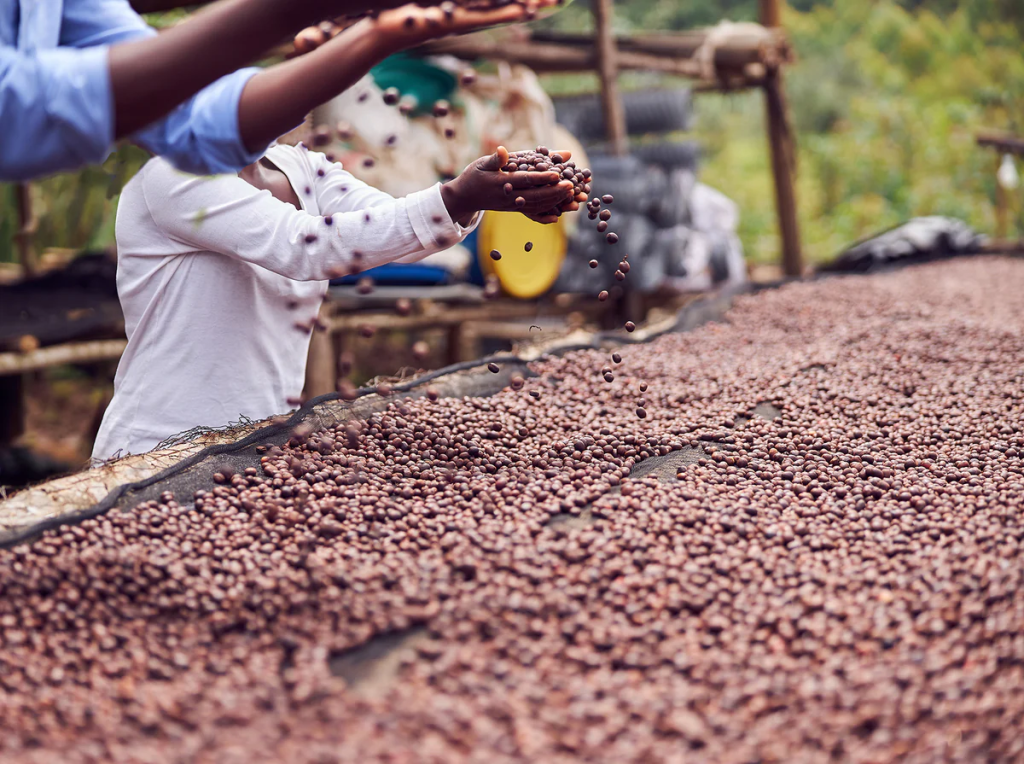African Coffee and Global Markets: How Africa Competes Worldwide in 2025

Coffee is one of the most traded commodities in the world, second only to oil in value. For Africa, the birthplace of coffee, this crop is more than just an export — it is a vital driver of economic development, cultural identity, and global recognition. Yet, when we look at the international coffee trade, Africa competes with other giants such as Brazil, Colombia, and Vietnam, which dominate production and exports.
This article explores how African coffee and global markets work, the challenges it faces, and the unique opportunities that could strengthen its competitiveness worldwide.
The Global Coffee Landscape
Major Coffee Producers
- Brazil: The world’s largest producer, responsible for over 35% of global coffee supply. Known for large-scale mechanized farming.
- Vietnam: The leader in Robusta production, fueling the instant coffee and mass-market industries.
- Colombia: Famous for its high-quality Arabica beans and strong branding campaigns.
- Ethiopia & Uganda: Africa’s top exporters, together making up around 10% of the global market.
Consumption Trends
- Rising demand for specialty coffee in North America, Europe, and Asia.
- Growing consumer interest in sustainability, traceability, and ethical sourcing.
- Expansion of coffee culture in emerging economies like China and the Middle East.
Africa has a smaller share of global exports compared to Latin America and Asia, but its reputation for unique, high-quality flavor profiles gives it a strong foothold in specialty markets.
Africa’s Competitive Advantages
Unique Flavor Profiles
- Ethiopian coffees are celebrated for floral and fruity notes, often described as tea-like.
- Kenyan coffees are prized for their bright acidity and citrus flavors.
- Rwandan and Burundian coffees have gained attention for their sweet, berry-like complexity.
These distinct taste profiles differentiate African coffee from the bulk production styles of other regions.
The Birthplace of Coffee
- Ethiopia is recognized as the origin of Arabica coffee, giving African beans unmatched cultural and historical appeal.
- This narrative is a powerful marketing tool in the specialty coffee sector.
Growing Specialty Coffee Sector
- Increasing number of washing stations and cooperatives focused on traceability and quality control.
- African coffees frequently win international awards and competitions, enhancing their global reputation.
Challenges to Competing Globally
Infrastructure Gaps
- Poor roads and limited port access delay exports.
- Lack of modern processing facilities reduces consistency in quality.
Market Volatility
- African farmers are highly vulnerable to global coffee price fluctuations.
- Heavy reliance on a few export markets creates risks.
Low Farmer Income
- Despite high-quality products, many smallholder farmers receive minimal profits due to middlemen and weak bargaining power.
Competition from Large Producers
- Brazil and Vietnam’s scale and efficiency make African coffee less competitive in mass markets.
- African producers must focus on quality over quantity to stand out.
Opportunities for African Coffee in Global Trade
Niche Specialty Markets
- African coffees thrive in direct trade and specialty roaster relationships.
- Single-origin African beans are increasingly sought after by premium cafés and consumers.
Certifications and Traceability
- Fairtrade, Rainforest Alliance, and organic certifications can add market value.
- Transparent supply chains appeal to ethically conscious consumers.
Branding and Storytelling
- Leveraging Africa’s coffee heritage — especially Ethiopia’s origin story — can attract global attention.
- Highlighting women-led cooperatives and sustainability initiatives adds a competitive edge.
Emerging Markets
- Rising coffee consumption in Asia and the Middle East opens new opportunities.
- African countries can expand trade beyond traditional European and U.S. markets.
Case Studies: African Coffee on the Global Stage
- Ethiopia: Known as the “birthplace of coffee,” Ethiopia exports primarily Arabica, with strong growth in direct trade and specialty markets.
- Uganda: One of the world’s leading Robusta producers, now expanding Arabica production to diversify exports.
- Kenya: Renowned auction system ensures quality but also faces criticism for limited farmer profits.
- Rwanda: Post-genocide investment in coffee quality has positioned Rwanda as a respected player in specialty markets.
The Role of Trade Organizations
Organizations like the African Fine Coffees Association (AFCA) play a crucial role in:
- Facilitating trade connections between African farmers and international buyers.
- Hosting events such as the African Fine Coffees Conference & Exhibition (AFCCE) to promote African coffee globally.
- Advocating for policy improvements that benefit smallholders and cooperatives.

Future Outlook: Competing in a Globalized Coffee Market
For Africa to increase its global market share, several key steps are necessary:
- Investment in infrastructure to reduce export barriers.
- Farmer training and education to ensure consistent quality.
- Branding strategies that highlight Africa’s heritage, sustainability, and unique flavors.
- Diversification of markets to reduce dependence on Europe and the U.S.
If these opportunities are embraced, African coffee can move beyond being a niche specialty product to becoming a global leader in sustainable and high-quality coffee production.
FAQs on African Coffee and Global Markets
Q1: How does African coffee differ from Latin American or Asian coffee?
African coffee is known for its floral, fruity, and complex flavor profiles, while Latin American coffees are typically chocolatey and nutty, and Asian coffees are often earthy and full-bodied.
Q2: Why does Africa have a smaller market share compared to Brazil or Vietnam?
Large-scale mechanized farming in Brazil and Vietnam allows them to produce higher volumes at lower costs, while Africa focuses more on smallholder farms and specialty quality.
Q3: Which African countries are the biggest coffee exporters?
Ethiopia and Uganda lead the continent, followed by Kenya, Tanzania, and Rwanda.
Q4: What role does sustainability play in global competition?
Sustainability adds market value and attracts buyers who prioritize ethical sourcing and environmental protection.